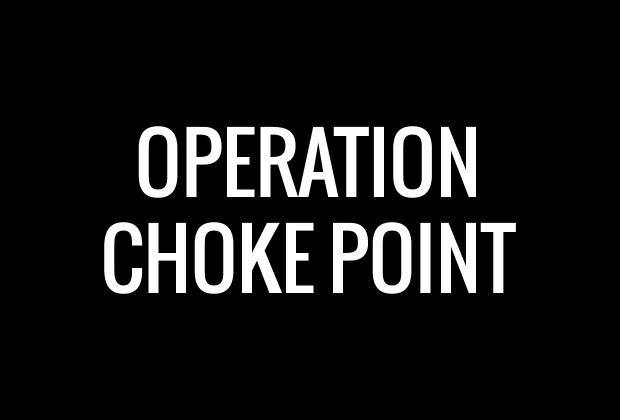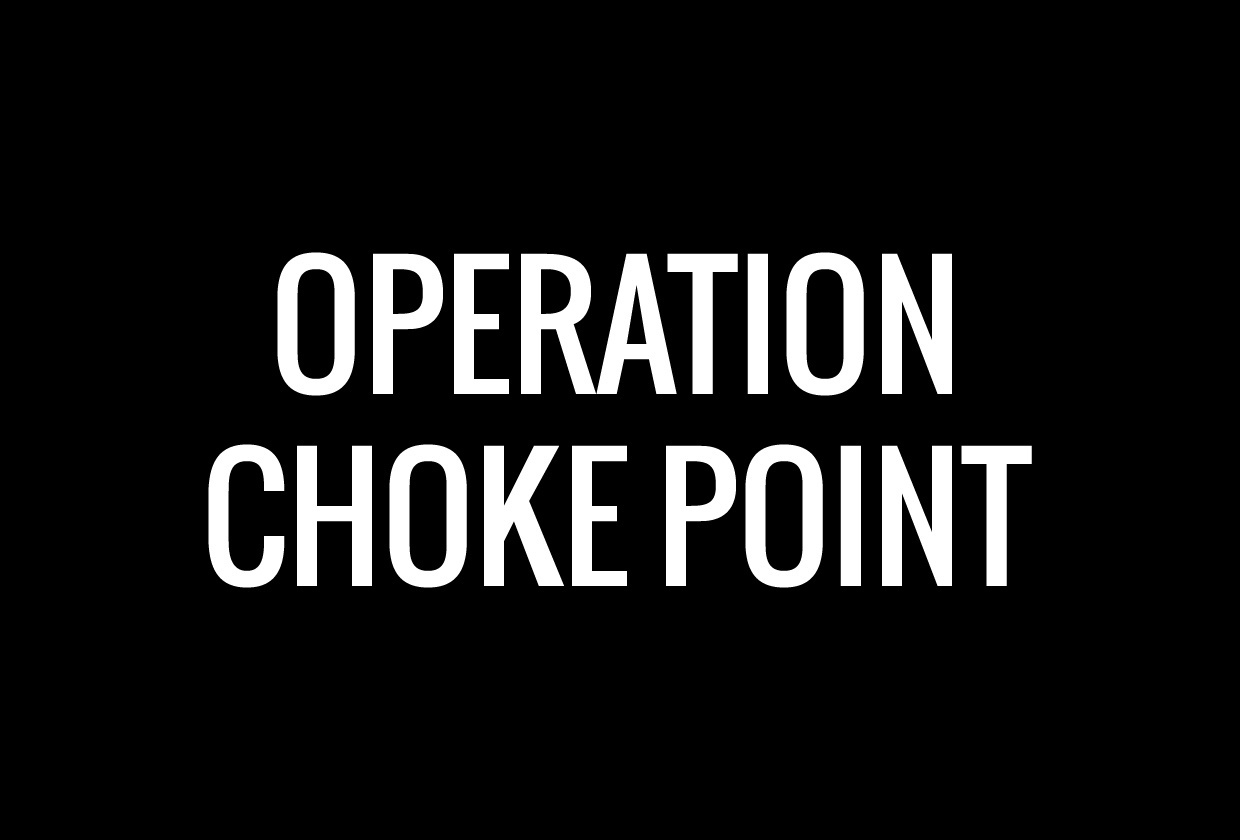While the cigar industry as a whole awaits FDA’s decision on how it plans to regulate premium cigars, tobacco retailers have a new and very real threat to be concerned about. A federal program called Operation Choke Point was created to target “high risk businesses” that present a significant “reputational risk” for the banks that service them, and has resulted in the banks that process their credit card transactions and provide other financial services dropping them without any level of recourse.
Now tobacco retailers are being targeted as part of the initiative.
Last week, the International Premium Cigars & Pipe Retailers Association (IPCPR) sent out an email advisory to its members notifying them that two retail members had already been “seriously affected” by the program, which they describe as having been launched as an effort to “target certain industries by pressuring banks to deny financial services to legitimate businesses for political reasons.”
Since that email, the number has increased to five retailers across the country that have contacted IPCPR as of Thursday afternoon.
The IPCPR’s advisory, which was signed by Kip Talley, senior director of federal legislative affairs for IPCPR, went on to say that “it is our understanding that the IPCPR members that have been targeted received written notice from their banks terminating their businesses relationships. This correspondence explains that based on the nature of their businesses, the bank must close their accounts.”
Talley said that so far he has not seen a pattern in the retailers that have been affected, as they come from different parts of the country and use different banks, as well as having varied operations in terms of store size, number of locations and so forth. He also said he wouldn’t be surprised if there are more retailers who have had this happen but have yet to notify IPCPR.
The immediate ramifications are obvious, as if a retailer is unable to accept and process credit cards or have a bank in which to deposit their receipts, or an account for which to purchase new products, make payroll, pay their lease and so forth, it creates a significant obstacle to doing business.
However it goes beyond that, as some retailers have had their personal accounts terminated with their banks as well. In one case, Talley said a retailer was informed that his relationship with the bank was being severed, despite having been a personal banking customer since 1988 and having a “perfect” credit rating. The bank was the same one that was used to open the retailer’s business.
While Operation Choke Point was launched in 2013 by the Department of Justice (DOJ) as a way to “choke out” individuals and companies committing mass-market consumer fraud from the federal banking system, it has begun to appear that it is being used to force out of business companies the Administration considers “high risk” or otherwise objectionable, despite the fact that they are legal businesses.
This is done by forcing banks to terminate their relationships with those companies, even if they have done nothing wrong or shown any indication of being attempting to commit fraud or other crimes, by threatening to conduct a full audit of the bank’s entire customer base if they don’t terminate the accounts of these high risk businesses.
The list includes a wide range of businesses, ones that sit on both sides of legal and illegal activity, including coin dealers, firearms and ammunition dealers, short-term lenders and tobacco sales, as well as pornography companies, cable box de-scramblers, fireworks retailers, Ponzi schemes, escort services, dating services and travel clubs. The full list of the 30 types of businesses can be found on page eight of this report by the U.S. House of Representatives’ Committee on Oversight and Government Reform, though it was recently removed from the FDIC’s website. A recent Financial Institution Letter said that:
[T]he lists of examples of merchant categories have led to misunderstandings regarding the FDIC’s supervisory approach to institutions’ relationships with TPPPs, resulting in the misperception that the listed examples of merchant categories were prohibited or discouraged. The FDIC encourages insured depository institutions to serve their communities and recognizes the importance of services they provide. In fact, it is the FDIC’s policy that insured institutions that properly manage customer relationships are neither prohibited nor discouraged from providing services to customers operating in compliance with applicable federal and state law. Accordingly, as part of clarifying our guidance, the FDIC is removing the lists of examples of merchant categories from outstanding guidance and the article.
However, that doesn’t mean tobacco retailers aren’t still being targeted as banks fear being fully audited if they happen to have one of these “high risk” businesses as a customer.
While the IPCPR has not publicly identified the retailers having been affected by Operation Choke Point, one has self-identified: Doug Giles of Safari Cigar, who wrote an article for a site called Daily Clash that he appears to operate as well.
Numerous businesses outside the tobacco industry have also reported being targeted by program, as in May the Washington Times wrote an article about the increasing scrutiny that several firearms retailers have come under since Operation Choke Point launched. Despite reports of good credit, the retailers seemed to have their bank accounts terminated for the “reputational risk” they posed. An August 2014 article in The Daily Caller added that banks dropped numerous types of retailers out of fear of a DOJ investigation.
Beyond that, Talley said that he had learned of a bank dropping a law firm simply because they represented a business who had been dropped as a result of Operation Choke Point.
A number of banks have already been cited as having dropped accounts due to Operation Choke Point, including J.P. Morgan, PNC Financial Services Group, National Bank of California, Chase, Bank of America, Bank of Hawaii, Hancock Bank, Whitney Bank, SunTrust Bank and Fifth Third Bank.
To add to the complexity and confusion about how Operation Choke Point is being carried out, all of this is happening despite the fact that since February, federal regulators have given the green light for banks to do business with marijuana dispensaries, even though it remains a controlled substance at the federal level.
One sector of the tobacco industry that has not reported getting targeted yet is cigar manufacturers, though it isn’t out of the question that they could eventually be added to the list.
With Attorney General Eric Holder announcing his resignation on Thursday, it’s very likely that Operation Choke Point will get even more publicity during the process of finding the next person to fill the role, particularly during the Senate confirmation hearings.
Talley reignited the warnings of Operation Choke Point targeting tobacco retailers with a flurry of Tweets recently, urging people to contact their federal representatives about the matter. He has also been busy on Capitol Hill, bringing the issue to elected officials and showing them the kind of fallout that the program is having on legal, licensed and upstanding businesses in the cigar industry. Capitol Hill appears to be listening, as U.S. Rep. Blaine Luetkemeyer, R-Mo., has already introduced a bill that would allow banks to maintain accounts with any legal and licensed business. H.R. 4986 has garnered 14 cosponsors since being introduced on June 26.
The IPCPR is asking any member who has been affected by Operation Choke Point, or who has been contacted by their bank about having to terminate their relationship, to contact Kip Talley immediately to help build a case to get the program put to a halt. Additionally, the organization is asking that its members contact their federal representatives to express their outrage over Operation Choke Point and demand that it be ended immediately.



